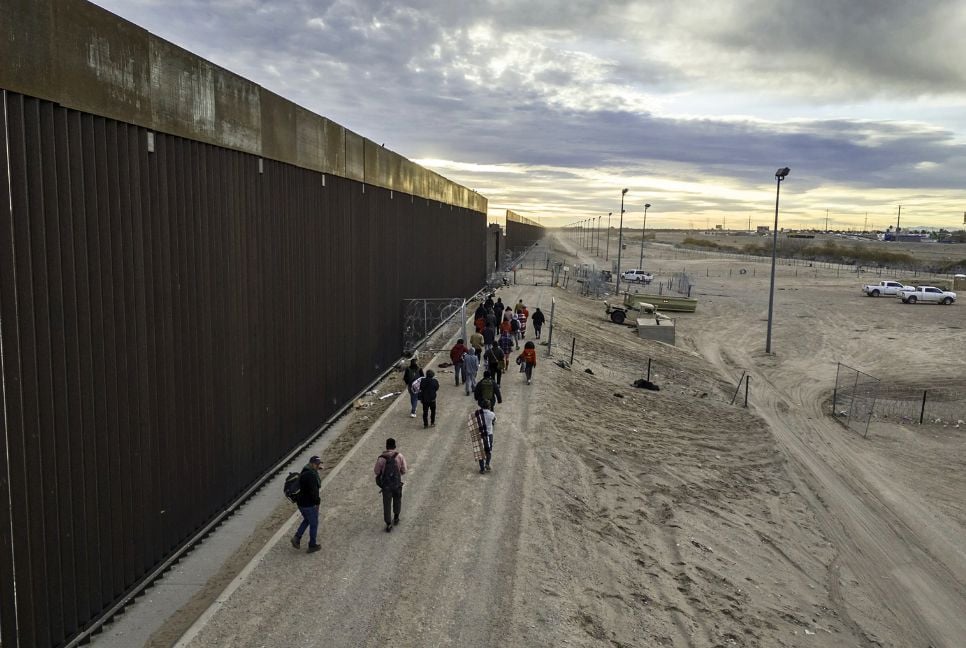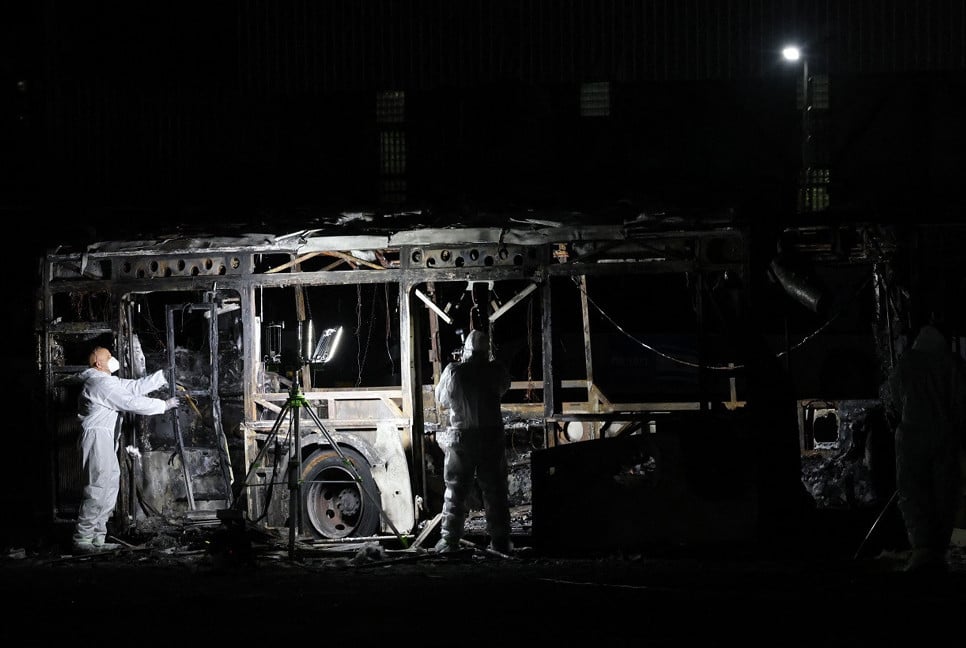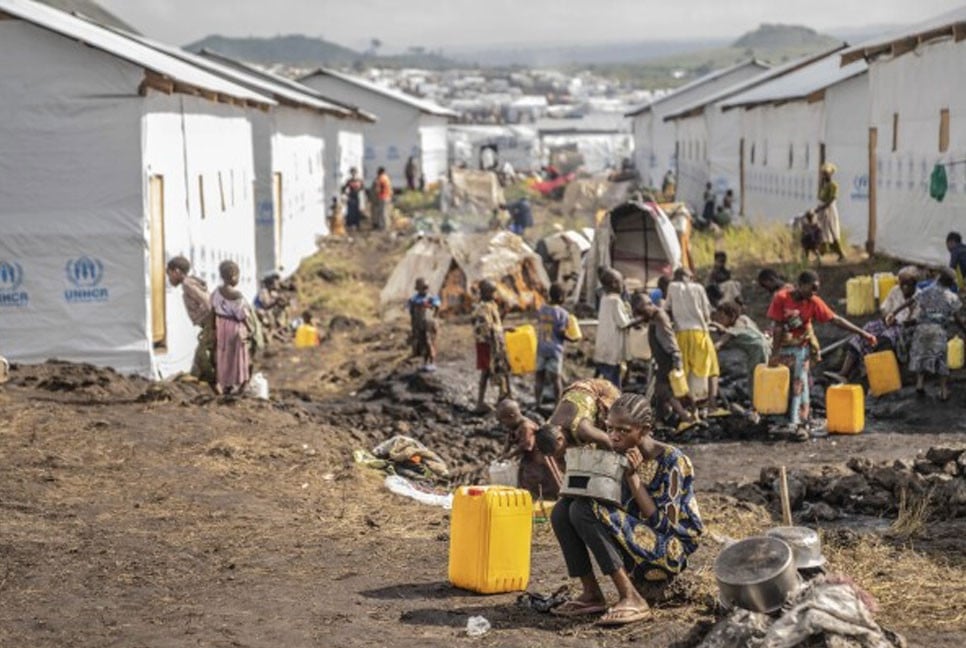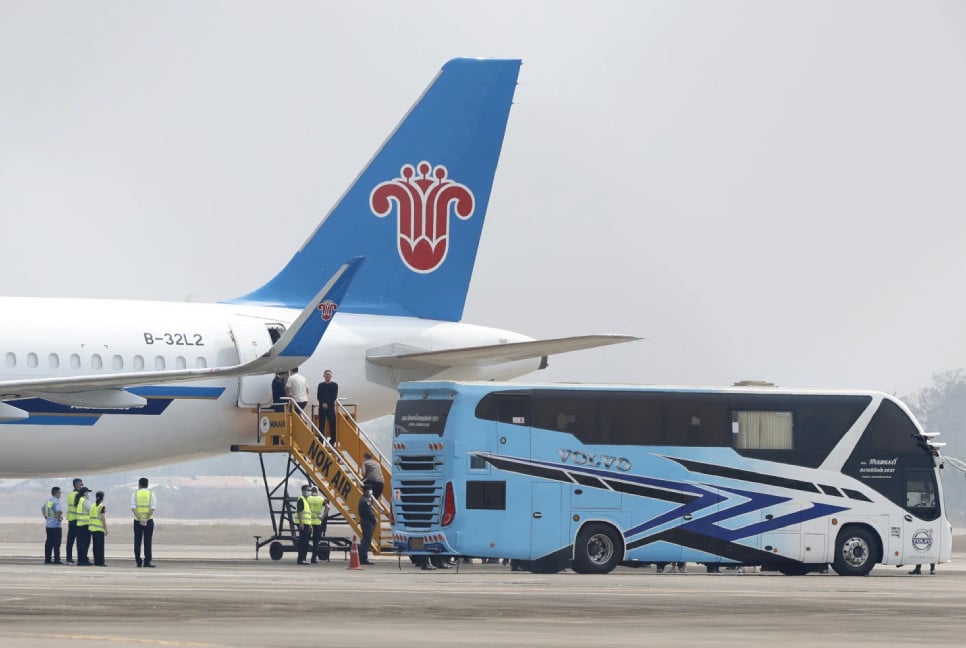Mexico is scrambling to prevent a crisis at its border with the United States ahead of another Donald Trump presidency during which he has vowed mass deportations.
US authorities estimate that there are around 11 million unauthorized people living in the United States, mostly from Mexico and Central America.
Trump, who takes office on January 20, threatened last month to impose steep 25-percent tariffs on imports from Mexico over the influx of migrants as well as drug trafficking, reports AFP.
Mexican President Claudia Sheinbaum is trying to appease Trump by preventing migrants reaching the border between the two countries.
She spoke with Trump on November 27 and said she had explained that under her government's strategy, migrant caravans were "attended to" before reaching the border.
'Containment'
Several migrant caravans that left southern Mexico for the US border since November have dispersed, in most cases after receiving permits to stay in the country.
Mexico is applying a policy of "containment and wearing (migrants) down," Stephanie Brewer, Mexico director of WOLA, a US-based organization that promotes rights in the Americas, told AFP.
Since Sheinbaum took office on October 1, Mexican authorities have intercepted nearly 5,400 undocumented migrants a day.
That is up from 3,400 at the end of the term of her predecessor, Andres Manuel Lopez Obrador, official figures from December 3 showed.
During Trump's first term, Lopez Obrador deployed thousands of border guards to block Central American migrants, pleasing the Republican.
A rush to the border by migrants trying to enter the United States before the start of Trump's second term predicted by some activists has failed to materialize.
Hostels in the Mexican frontier city of Ciudad Juarez have been half-empty for months, reflecting tougher immigration policies introduced by outgoing US President Joe Biden.
Migrants are now supposed to schedule an appointment at an official port of entry through a cell phone application.
The number of US border patrol encounters with migrants crossing over from Mexico illegally fell to around 54,000 in September, from a peak of nearly 2,50,000 in December 2024, according to the US government.
Juan Fierro, director of the El Buen Samaritano (The Good Samaritan) hostel in Ciudad Juarez, said that he had received no new migrants in three months because, he believes, they are being detained in Mexico and returned to the country's south.
Negotiation
In 2018, Mexico gave in to pressure to start taking non-Mexican migrants deported from the United States in return for a promise from Trump to rescind his threat of punitive tariffs.
The deportations accelerated during the Covid pandemic, with Trump invoking public health provisions to swiftly send back migrants crossing the border from Mexico – a policy continued by Biden until May 2023.
During three years of the controversial measure, Mexico accepted nearly three million deportees, 40 percent of them foreigners, official figures show.
In the past year, the United States has reverted to deporting non-Mexican migrants directly to their countries – an arrangement Sheinbaum hopes to continue with Trump.
"Our main function is to take in Mexicans," she said this month.
At the same time, Sheinbaum left the door open to taking in migrants from countries like Venezuela, which refuses to accept US deportation flights.
In another plank of her strategy, Sheinbaum sent Foreign Minister Juan Ramon de la Fuente to the United States this month to discuss defending the rights of Mexicans -- including an estimated six million undocumented migrants living there.
"I am here to send a very clear message to the entire community of Mexicans in the United States: you are not alone," he said.
Bd-pratidin English/Fariha Nowshin Chinika





















































